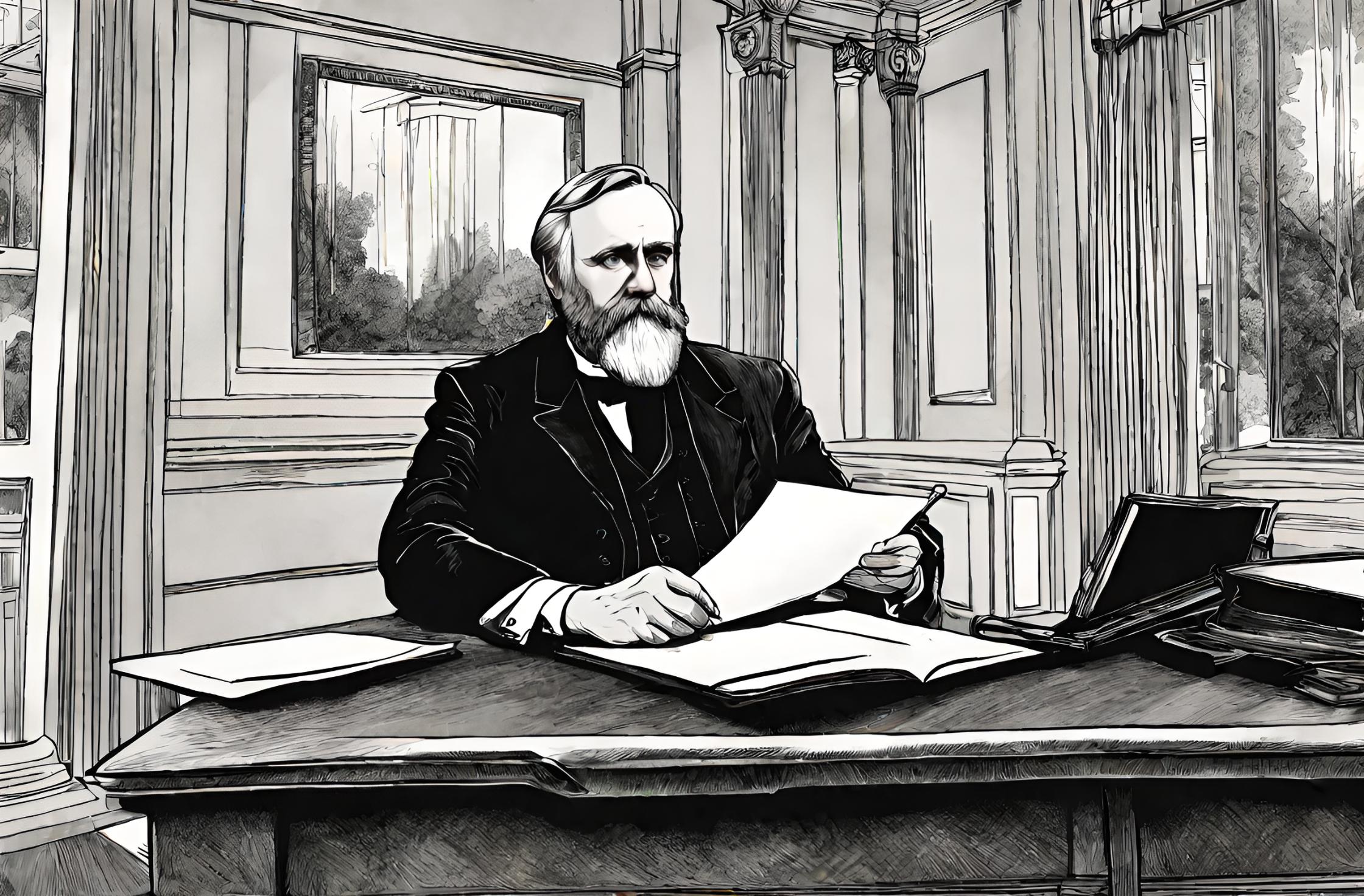Flashback to March 4
American History

Have you ever stepped through a revolving door, felt that gentle push, saw the world spin as you passed from outside to inside, or vice versa? You probably haven’t given much thought to the inventor of this commonly-used architectural feature, perhaps even taking it for granted. Well, let’s take a journey back in time, to the day when Theophilus Van Kannel of Philadelphia patented this revolutionary invention on the 7th of August 1888.
Theophilus Van Kannel, an inventor from Philadelphia, changed cityscapes around the world with his creation of the revolving door, a door that spins about an axis at its center. This invention not only revolutionized how we move between spaces but also introduced a host of other intriguing benefits.
Van Kannel’s innovation was born out of his distaste for traditional hinged doors. He found them not only a nuisance due to the way they would open directly into someone’s face or require a stifling protocol of opening for others, but also troublesome as they let gusts of air into heated interiors. Thus, the revolving door, with its revolving mechanism, offered an effective solution to both of these issues, seeing its first patent on that historic day in 1888.
The revolving door made an immediate impression in the architecture and business world, offering several unseen benefits. Not only did it eliminate the troublesome etiquette around door-opening, but it started to reshape the notion of energy efficiency. The revolving door, due to its circular motion and continuous closing mechanism, prevents drafts of air, thereby reducing heating costs in the winter and cooling costs in the summer. This facet of the invention was not part of Van Kannel’s initial motivation but is perhaps what makes the revolving door most appealing today.
Theophilus Van Kannel’s revolving door had a monumental impact on the urban landscape. Imagine the skyline of cities like New York or Chicago without their tall towers capped with rotating doors, a sight unthinkable today. The revolving door became a symbol of modernity, seen in prestigious establishments and skyscrapers worldwide, symbolizing a commitment to efficiency, convenience, and elegance.
Moreover, the revolving door even found its place in psychology and social science literature. Researchers studying pedestrian behavior have long used the revolving door as a model for understanding patterns in human movement and have noted the hesitation people often feel before entering a revolving door. This notion captures a universal sense of discomfort around unfamiliar technology, making the revolving door a meaningful metaphor in cultural analysis.
Van Kannel’s invention also had a fascinating impact on popular culture. For instance, the symbolic repeated entrance and exit in movies, indicating the passage of time or the endless monotony of a certain routine, wouldn’t be achievable without the presence of the impracticable, continuous revolving doors. Additionally, the revolving door has been a motif in literature, symbolizing the endless cycle of life, death and rebirth, or even the cyclical nature of capitalism.
the 7th of August 1888 is a significant day in the history of innovation, marking the birth of a remarkable creation by Theophilus Van Kannel of Philadelphia- the revolving door. This invention that ushered in an era of change and evolution. The contributions of this architectural feature extend far beyond being a mere entryway into buildings. Rather, it permeates into diverse fields like energy conservation, psychology, and popular culture. It’s remarkable how the humble revolving door, patented on that distant summer day, continues to impact our lives in profound ways.
We strive for accuracy. If you see something that doesn't look right, click here to contact us!
Sponsored Content

Inauguration of Rutherford Hayes…
The Inauguration of Rutherford…

Authorities announce the capture…
On March 4, 1993,…

The United States Department…
On March 4, 1913,…

Space Shuttle program: STS-36…
The Space Shuttle program's…

City Command kidnaps four…
On 3/4/1971, four US…

